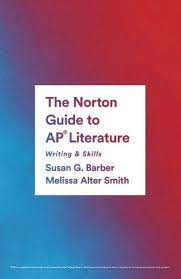Some days feel like a mad dash to the final bell.
When that happens my colleagues can read it on my face, I am surviving day-to-day. It is a huge source of stress for teachers when the day owns them, they don’t own the day. And it leads to all kinds of complications like low morale, diminished productivity, lack of enthusiasm, and apathy.
So how can so you create order within the chaos?
I have a few rules that have helped me take ownership of my day and block out the things that can invade my happiness. A teaching day is complex, but it need not be complicated. It all comes down to finding ways to simplify the things that thrive on chaos.
These are mantras that I repeat to myself often, and even though I call them “rules,” rules are meant to be bent and broken when necessary.
5 Rules for a Simpler Day
- “No” is a complete sentence. I don’t like to let people down. I want to be of service to others. But in the past that has meant that people have taken advantage of my kindness and willingness to help. As I have aged, I’ve realized the value of my time. If something will take me away from my home and my family, I should to be compensated for it. After all, I am a professional. Unfortunately, schools sustain themselves from the sweat of unpaid labor. Coaches conduct off-season workouts. English teachers read college essays after school. Committees have volunteers. I have identified what’s important to me and tried to reduce the rest. So when I am asked to volunteer or do things for free, the answer is often “No.” And that, in itself, is a complete sentence.
- If it is really important, someone will find me. This is my riskiest rule of all, but it may be the most rewarding. Any teacher’s day could be overwhelmed by passive, indirect communication through emails and learning management systems like Google Classroom. To fully read, respond, and properly record all of this information would leave no time to prep, grade, or develop professionally. A good percentage of communication along these channels is not urgent or even necessary. It is someone covering their ass and their responsibility. Not every email needs a response. Not every survey needs to be completed. Not all data is driven toward better outcomes. This is not to say that I ignore email or the comments in Google Classroom. Experience has taught me what should be ignored, what should be skimmed, and what should be read completely. If I miss something along the way, and it truly is necessary, someone will find me. This allows me to control my time and not be at the mercy of someone else’s agenda.
- 10 minute organization. Unlike the last rule, assignments that get lost in the shuffle of a messy desk don’t come to you when the time is right. And I am someone that has earned a grey hair or two looking for a lost essay. I am at my best when I take 10 minutes at the end of each day to tame the wild beat that is my desk. A day that ends with order will begin with order the next morning.
- Create blocks. If you want to feel productive and in control, stop multi-tasking. One task at a time, with full focus on that task. Whenever I do this, I feel a sense of purpose and authority. As a result, each morning I list my 3 most important tasks. It all goes into my Daily Teacher Journal. In all, it takes 5 minutes to complete a page and I have my priorities set. Then, I work on blocking out the time to accomplish those three things.
- Create Space Between. Sometimes it nice to pull down the security blind on my door when I am not teaching and enjoy the space between things. Those moment can be just as important as the things themselves. It allows me to box breathe, get a glass of water and hydrate myself, or do the chess.com daily puzzle. When I take those few precious moments for myself and appreciating them for what they are, I find myself coming back to the work at hand reenergized and invigorated.













One comment
Nicole
Somehow, your missives full of fun and wisdom arrive just at the moment on a Sunday evening when it all seems that chaos is coming again. So many brilliant ideas and calming words: you are quite the guru! Much thanks for all of this.